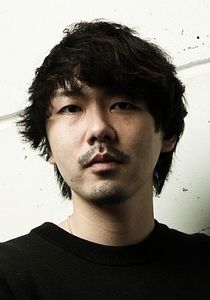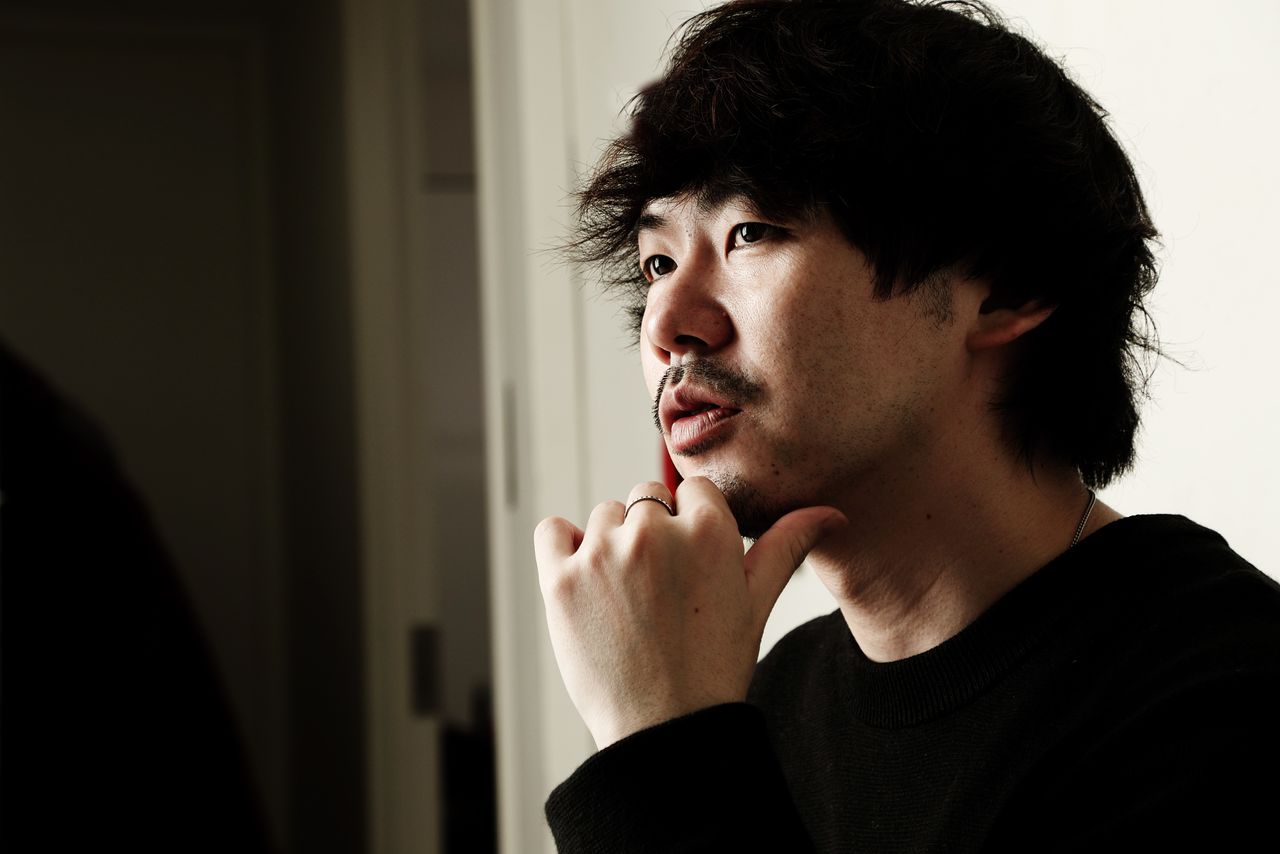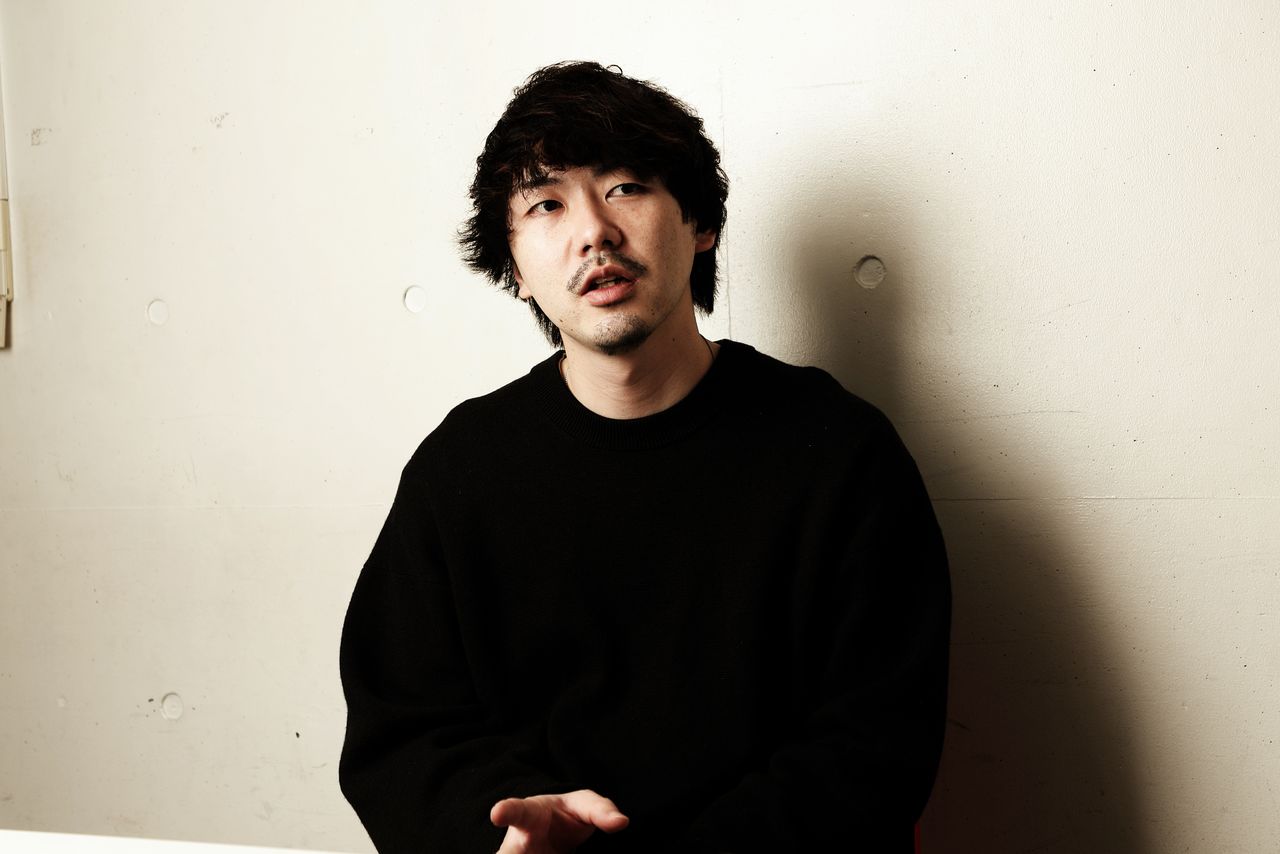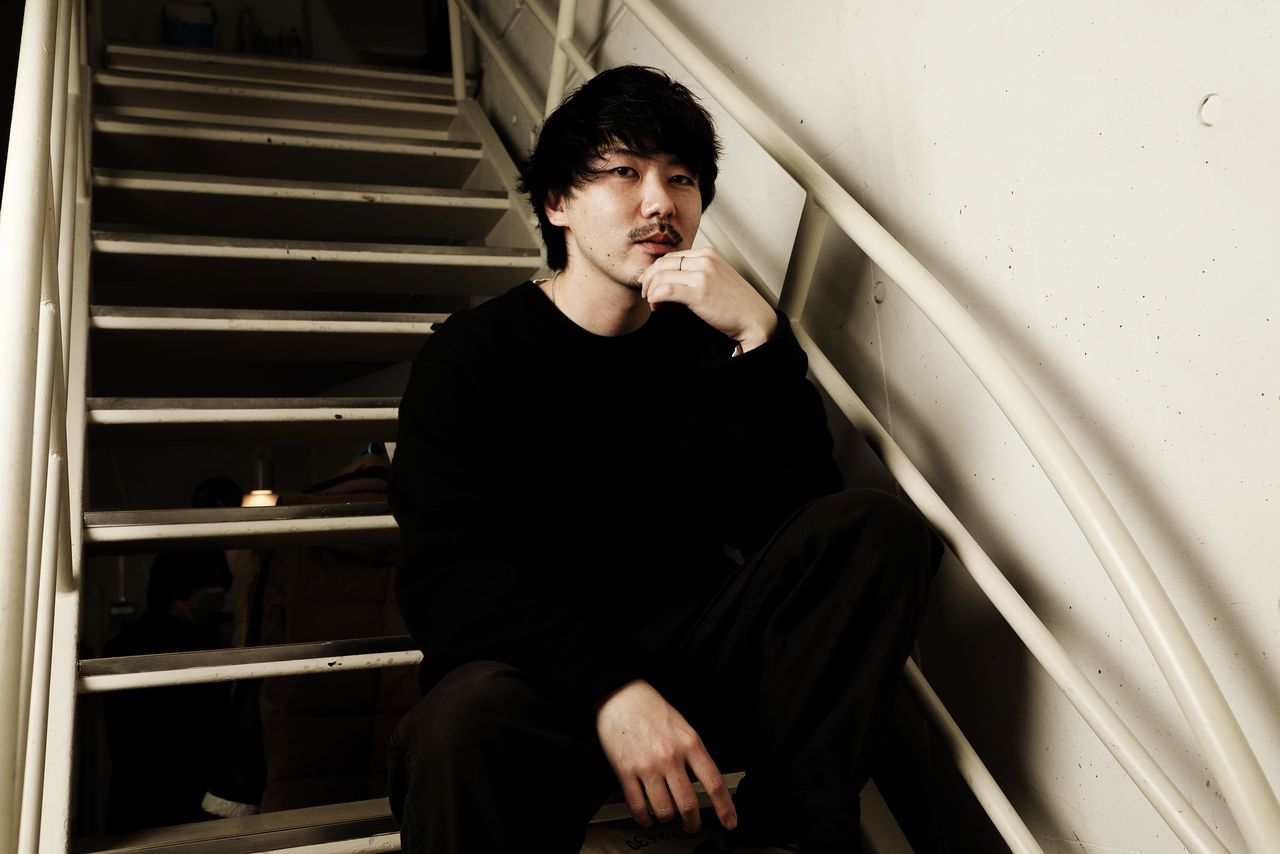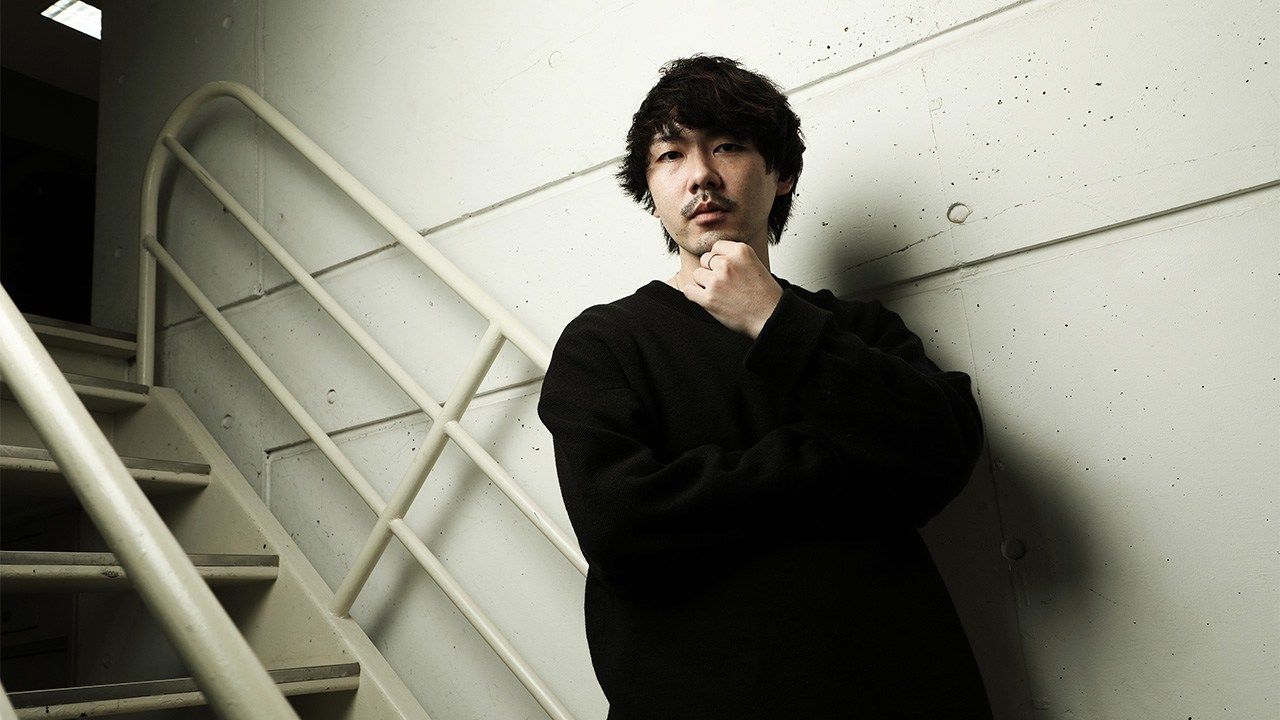
Director Matsumoto Yūsaku on the Embattled Genius at the Heart of “Winny”
Cinema Technology Disaster- English
- 日本語
- 简体字
- 繁體字
- Français
- Español
- العربية
- Русский
What Was the “Winny Case”?
Winny is the name of a file sharing program that saw enormous popularity among Japanese computer users some 20 years ago. It used peer-to-peer protocols to allow individual computers to connect over a network and exchange data without needing an intermediary server.
However, its anonymity protections also opened it up to misuse and enabled illegal activity like copyright infringement through the sharing of illegally copied movies, music, games, and more; the spread of obscene materials and child pornography; and computer viruses.
When the police set out to uncover criminal users of software like Winny, their prime targets became the developers. Police eventually arrested the man behind Winny, Kaneko Isamu, for “aiding in copyright infringement.” Kaneko had been called a “once-in-a-decade genius” programmer who could create a program that would normally take years to make in a matter of weeks. At the time he was an assistant professor at the University of Tokyo’s Graduate School of Information Science and Technology.
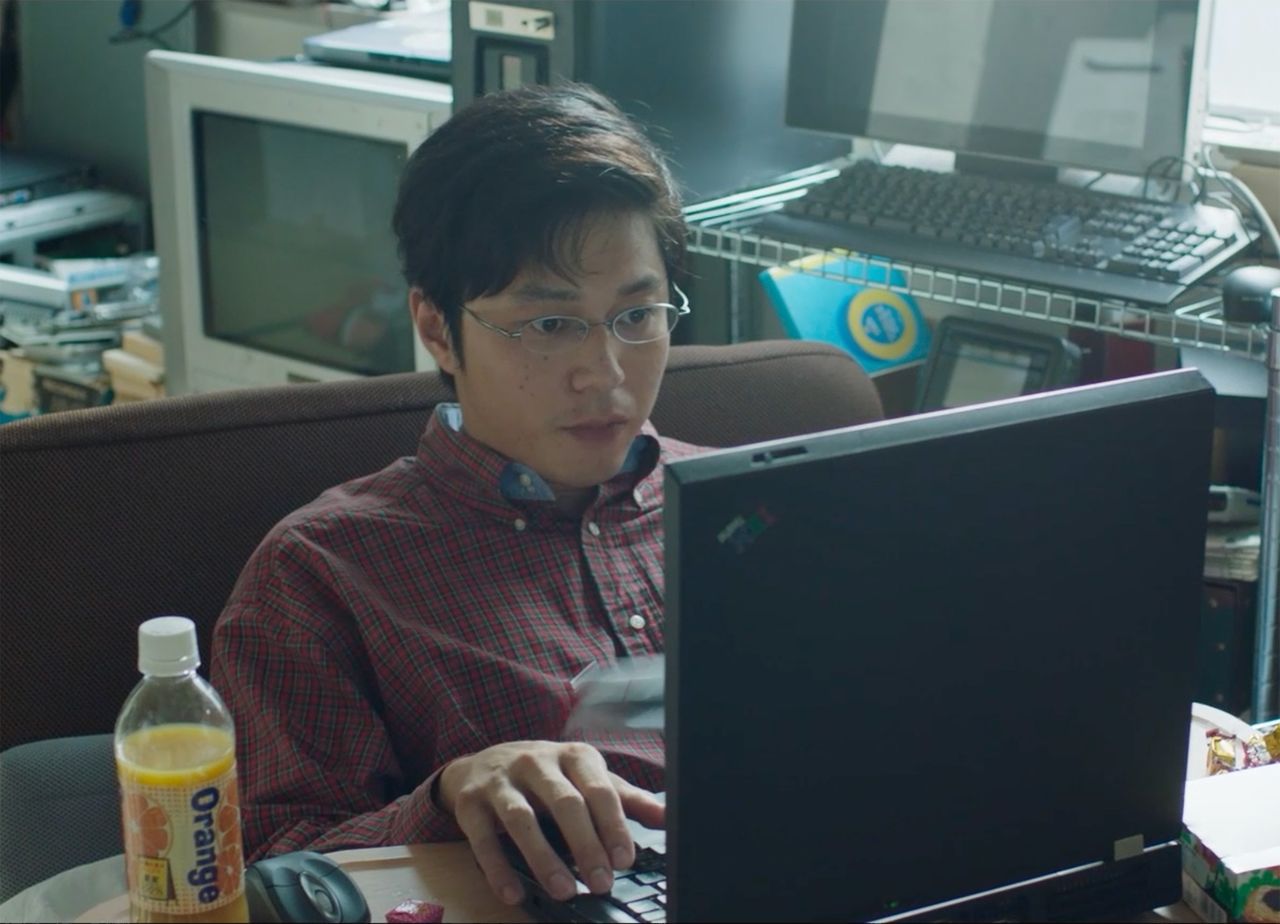
Actor Higashide Masahiro gained 18 kilograms to play Winny developer Kaneko. (© 2023 Winny Production Committee)
It was unprecedented to arrest a software developer for his work, so one can only assume there was some other motive at work. In Japan, once a suspect is arrested, the police and prosecutors do everything they can to push the case from indictment to conviction. It is easy to imagine Kaneko, who knew little of the world outside of computer programming, as an easy mark for their wiles.
Kaneko was indicted at the end of May 2004, and his trial hinged on whether he had intended to promote copyright infringement with his software. He lost his first trial and was ordered to pay a fine of ¥1.5 million, but on appeal the Osaka High Court overturned his conviction, acquitting him. The case then went all the way to Japan’s Supreme Court, and in December 2011 the court dismissed the prosecution’s appeal. Nearly eight years of legal battles ended with Kaneko acquitted of all charges.
However, just a year and a half after Kaneko became free to devote himself to software development once more, he died of acute myocardial infarction at the age of 42. The sadness over his untimely death was deepened by the regret that nearly a sixth of his life had been sacrificed to interrogations and trials.
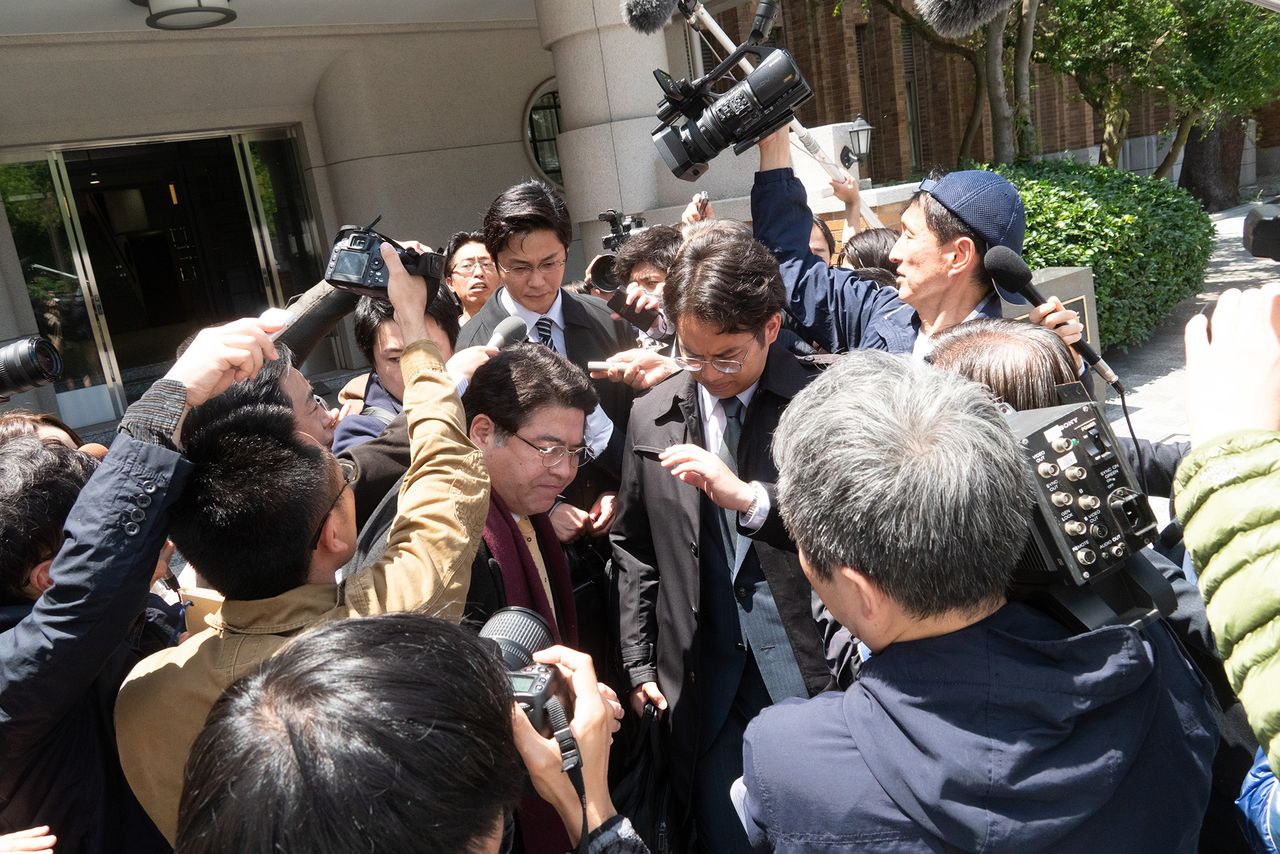
In a scene from the film, Kaneko is surrounded by press as he leaves the courthouse. (© 2023 Winny Production Committee)
This new film sheds light on the seven-and-a-half-year battle that Kaneko fought with realistic depictions of the case as a whole, and so demonstrates that those years were not simply wasted. He had the choice to stop fighting and pay the fine after he lost his first trial, yet he insisted on his innocence. The film naturally does not simply follow the facts, but uses the rhythms of suspense movies to draw viewers in while also inspiring reflection about the case, including its wider background.
Reality Through In-Depth Interviews
Film Director Matsumoto Yūsaku was first approached about a cinematic version of this story in 2018, right around when another project of his had been forced to change directions through tragic loss. The original idea had been to approach the case as a story-centered fictionalized account from present-day perspectives, but he cast that off in favor of a more direct approach to the facts, and so decided to start with in-depth interviews.
His script cowriter was Kishi Kentarō, who also served as cinematographer. The multitalented Kishi, who is also an actor, has been a close collaborator of Matsumoto’s since early in his career. The director and cinematographer exchanging ideas and visualizing scenes as they wrote the script was seemingly an ideal setup, and since Matsumoto had been an elementary school child at the time of Kaneko’s arrest, Kishi being nearly 20 years older was another big help.
Matsumoto reflects, “I knew almost nothing about the case, so I started the interviews from basically zero. We did interviews, finished the script, and then started shooting, but the interviews went on. It took nearly four years to finish. There were times when production stalled, but that was actually a good thing because it let us spend more time on the script.”
Since the result, the 2023 Winny, tells a story based on fact, they naturally had to spend time coordinating and building trust with the people involved, on top of just doing interviews. During the course of those interviews, they met someone who likely knew more about the case than anyone else: Dan Toshimitsu, head of Kaneko’s defense team. He becomes as much of a protagonist in the film as Kaneko.
“When it came to depicting a case and trial, we really had to work based on the lawyers’ perspectives. We had decided early on to make this would be both Dan’s and Kaneko’s story. Dan taught us so much. If we hadn’t met the man himself, we never could have made this movie.”
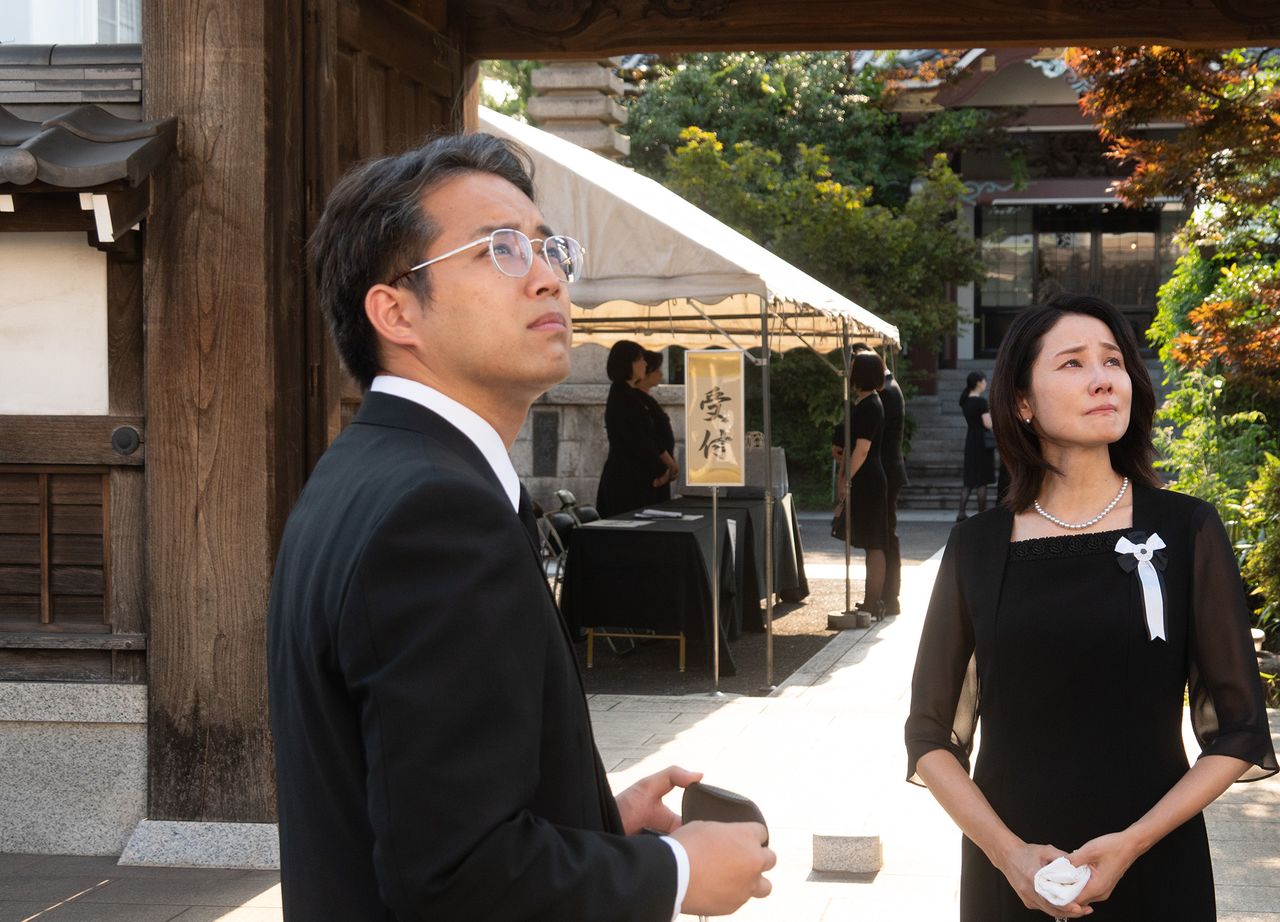
Isamu’s sister (played by Yoshida Yō) speaking with Dan (Miura Takahiro) at Isamu’s funeral. (© 2023 Winny Production Committee)
They asked Dan for details about Kaneko and the case, as well as advice on how to portray the trial.
“We watched lots of movies known for their trial scenes. But talking to a real lawyer showed us that the trials in movies just aren’t realistic. That’s kind of hard to hear as a filmmaker. I understand the desire to adapt things for movies, but since this is a story based in fact, we really wanted to make it a more realistic courtroom drama than ever before.”
Before filming ever started, the team was determined to grasp the details completely, down to legal terminology. In addition to observing trials, they also invited working lawyers to reenact the Winny trial for them. The actors playing Kaneko and Dan, Higashide Masahiro and Miura Takahiro, also joined this mock trial.
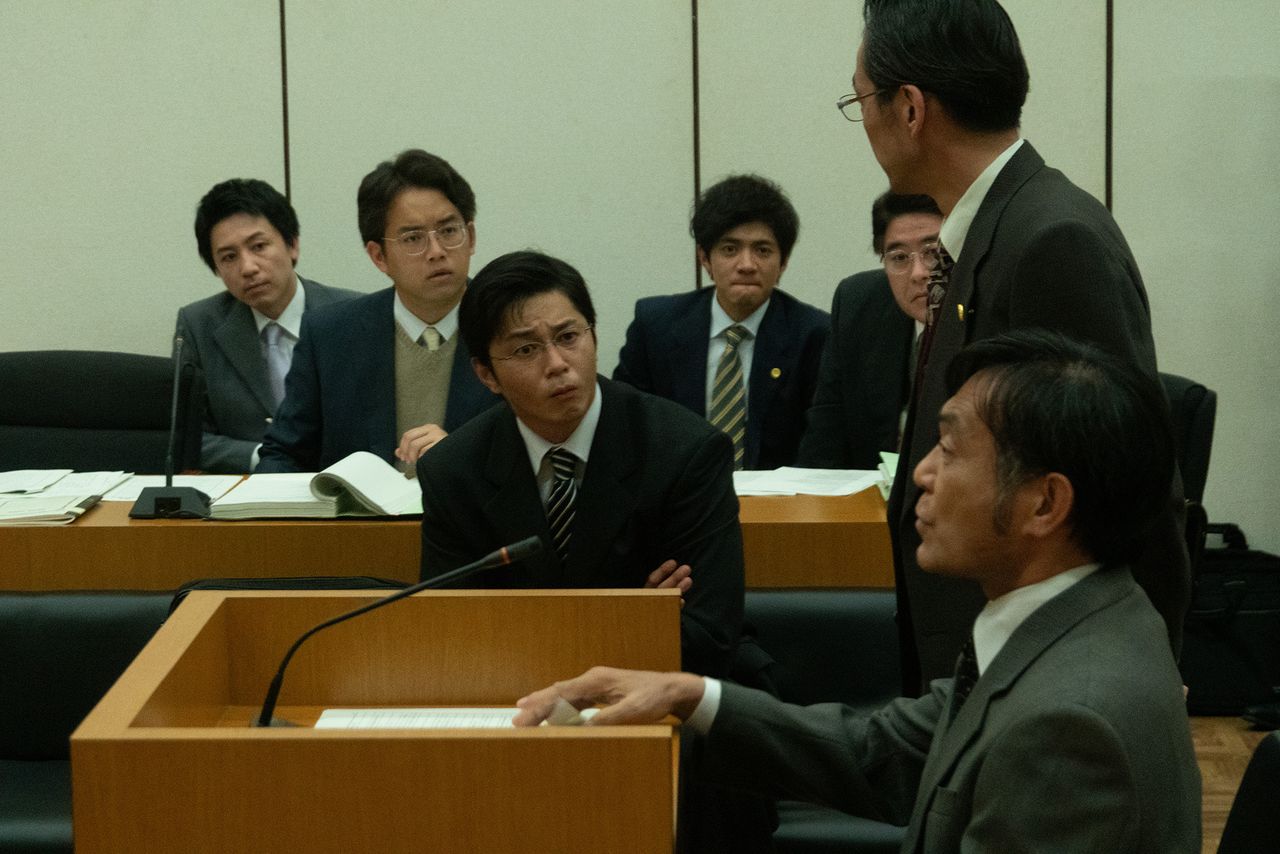
A lieutenant with the Kyoto Prefectural Police’s High-Tech Crime Taskforce, who interviewed Kaneko after his arrest, testifies in court. (© 2023 Winny Production Committee)
“If I hadn’t become a filmmaker, I wanted to be a journalist,” says Matsumoto, who has worked on a wide variety of jobs like television series, music videos, and commercials.
“I’m most curious about topics that have social implications, but while that is my life’s work, I want to try other things, too. Pure entertainment work can be helpful in serious filmmaking. So, genres I’d not normally choose, like romantic comedy, turn out to be really educational when I try them. If I only chose jobs I like, I’d lose that balance, so I want to try all kinds of things and learn about all kinds of different worlds.”
Why Do People Fight On?
Matsumoto’s 2017 first feature film, Noise, was an independent production. Set in Akihabara eight years after a famous mass murder there, it presents an unflinching look at the lives of characters including an underground idol, a high-school girl, and a student delivery driver. At an advance screening for the movie, Matsumoto met the Japanese mountaineer Kuriki Nobukazu.
“He fully supported my dream of making movies. We met for the first time at the screening, and he invited me to climb Everest with him. I thought he was joking so just brushed it off, but then we actually ended up going!”
In 2018, Matsumoto accompanied Kuriki’s team to Everest to shoot a documentary. The trip, though, ended in tragedy. Kuriki’s ill health forced them to abandon the attempt, and then Matsumoto had to say goodbye to his friend. That eighth attempt at Everest was Kuriki’s last; the mountaineer fell during the descent, perishing at the age of 35.
The next year, Matsumoto traveled to Nepal to film the 29-minute short work Bagmati River to try and accept and move on from his friend’s death. Kishi was also cowriter and cinematographer for this work, as with Winny, and had also joined Matsumoto and Kuriki on their trip to Mount Everest.
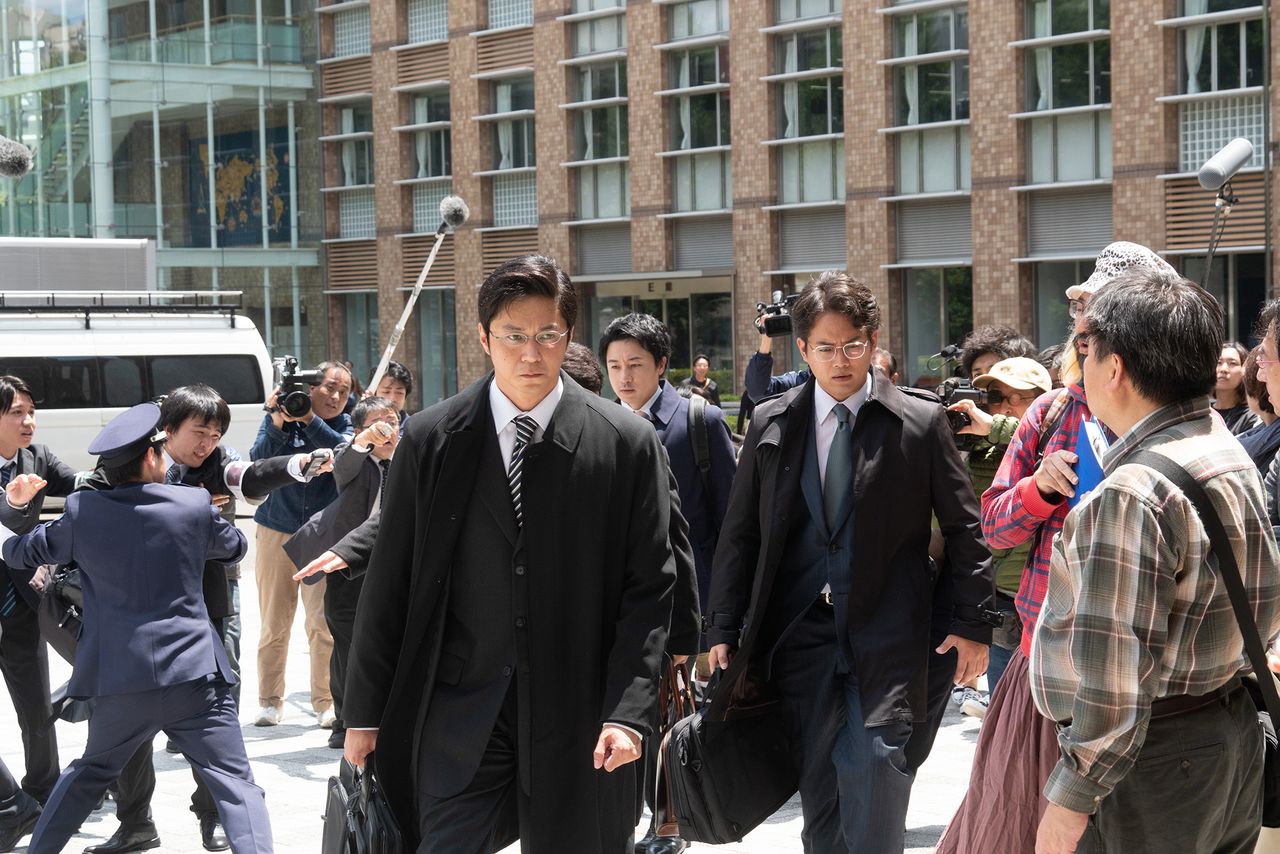
Winny shows the friendship that grew between Kaneko and Dan. (© 2023 Winny Production Committee)
The inception for Winny happens to coincide with the time when the two were trying to regain their feet after losing their friend. Although he was in a totally different field, Kaneko seems to be another unparalleled figure who went his own way without regard for the judgment of others.
“We never really thought about it, but when you put it like that, maybe there are some similarities. They’re intensely focused on one thing, so they lose sight of everything else. Kuriki and we were only friends for a short time, but he really did have this mysterious side that you never could know. And after talking to so many people for this project, it seems to me that Kaneko was the same.”
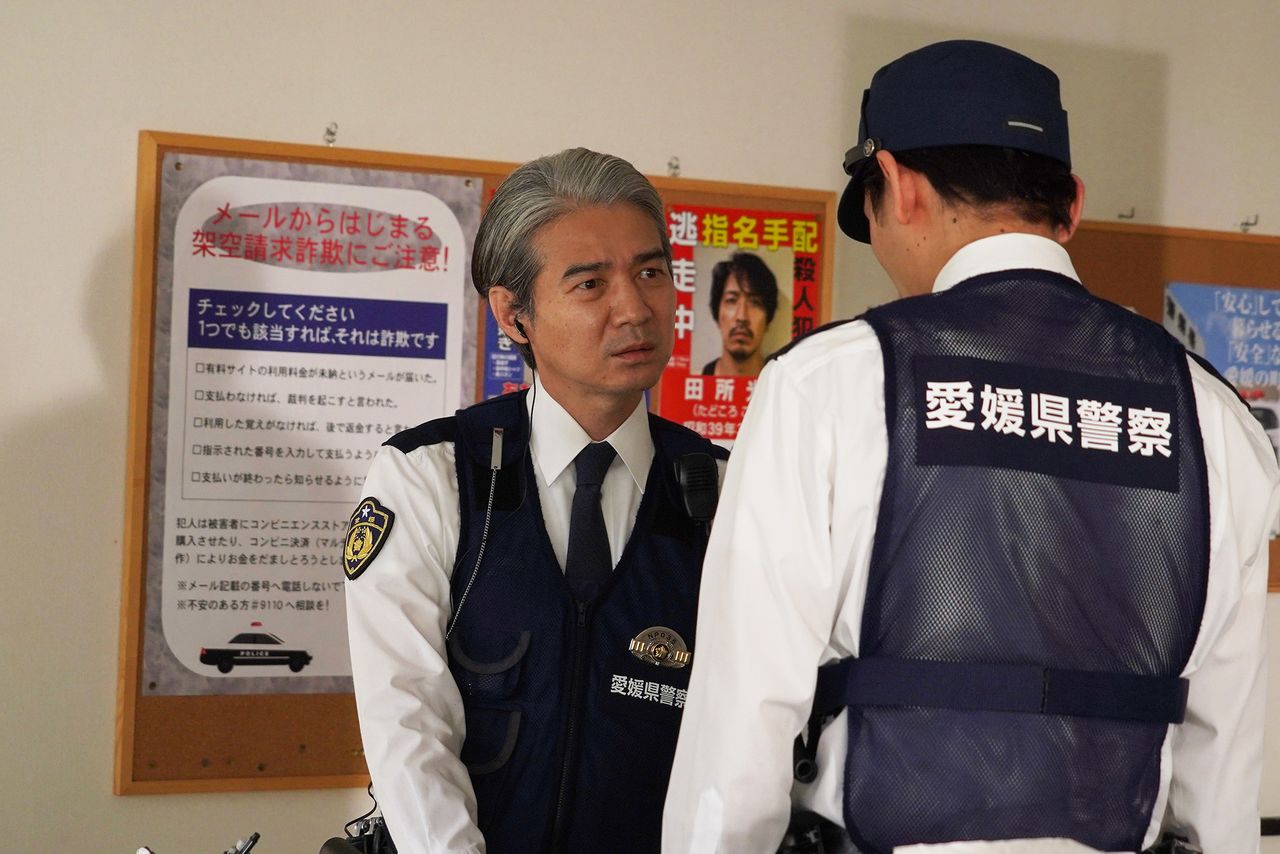
The film also includes mention of the Ehime Prefectural Police bribe scandal, which shocked Japan at the same time as the Winny case. (© 2023 Winny Production Committee)
Matsumoto uses the Winny case, which rewrote Japan’s internet history, to bring to the screen an image of Kaneko as someone who never lost his individual charm despite the isolation and awkwardness of his genius. It also explores what it was that he fought so hard for, giving up years of his life.
“The thing that attracted me most to Kaneko’s story was how he didn’t just go back to his work after losing that first trial, but chose instead to fight on and appeal. I thought that must hold some message for future engineers and Japanese society. I want everyone to know about that. I don’t think the Winny case is a simple one of who’s right and who’s wrong. There are all these different factors involved, like low computer literacy at the time, the pressures of a society that punishes those who stand out, and issues with criminal law. Even now, twenty years later, so much of that hasn’t changed. With this movie, I hope that I can help pass on Kaneko’s ideals, even if just a little.”
(Originally published in Japanese. Interview and text by Matsumoto Takuya of Nippon.com. Interview photos © Hanai Tomoko.)
